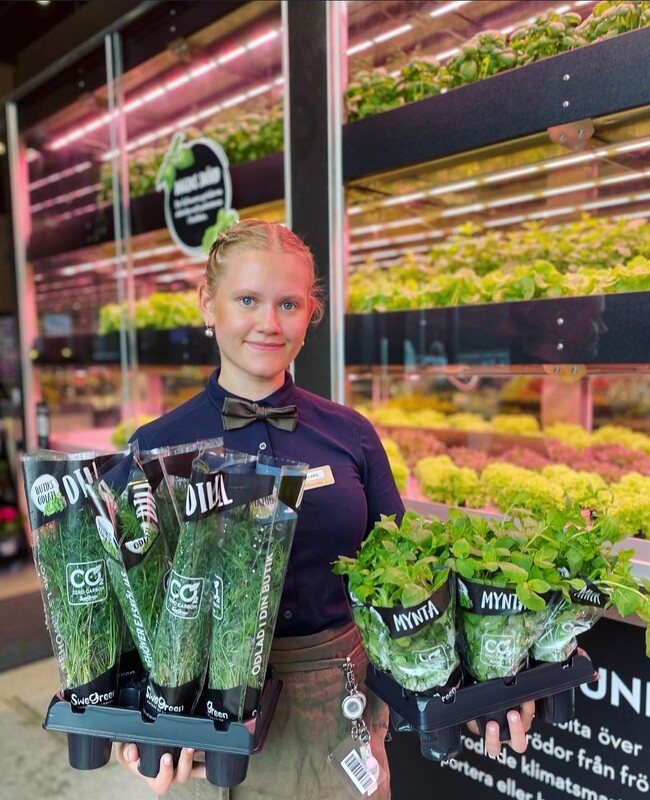In 2019, by combining expertise in technology and vertical farming, Swegreen launched an in-store ‘plant paradise’ to help even the smallest retailers and restaurants get fresh, great-tasting and nutritional vegetables onto consumers’ plates with minimum inputs and the smallest possible climate footprint. “Grodan is the best solution for us in our precisely controlled circular environment,” says Sepehr Mousavi, Chief Innovation Officer at Swegreen.
It is not unusual for fruit and vegetable production to be a high-tech activity nowadays, with industrial-scale, semi-automated greenhouses and precision growing becoming increasingly common. But in line with the company motto, Swegreen is focusing on the other end of the spectrum to help shape ‘the future of farming’. “We were keen to combine our knowledge and experience of both vertical farming with advanced digital technology, data analytics and world-leading techniques to grow fresh produce as close to the end consumer as possible,” says Sepehr Mousavi, Swegreen’s Chief Innovation Officer and Co-founder, who has been involved in vertical farming since the early 2010s. “We have developed small-scale indoor farming units of various sizes and production capacities so that customers can grow their own leafy greens and herbs – from seed to harvest – in their own retail stores, restaurants or hotels. Many supermarkets have in-store bakeries for bake-off products, so why not have your own in-store farm too?” he adds.

Switch to Clean
Hydroponic lettuce and other leafy greens will soon start to dominate sales at supermarkets and chain restaurants. With up to 12 times the number of crops a year than from open fields and twice the crop density, no other production method can compete. Production environments must however be clean. Stone wool is both clean and inert, making it ideal for producing hydroponic lettuce and other leafy greens.






 Swegreen nursery
Swegreen nursery



